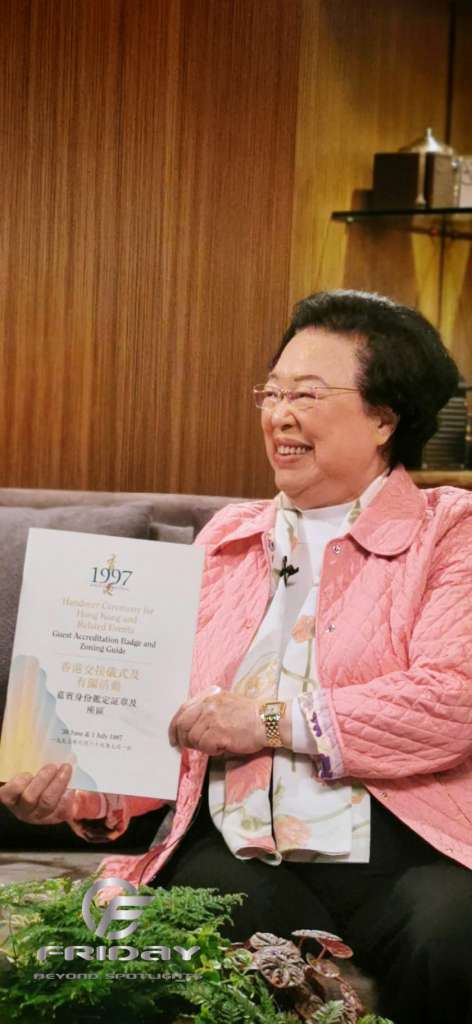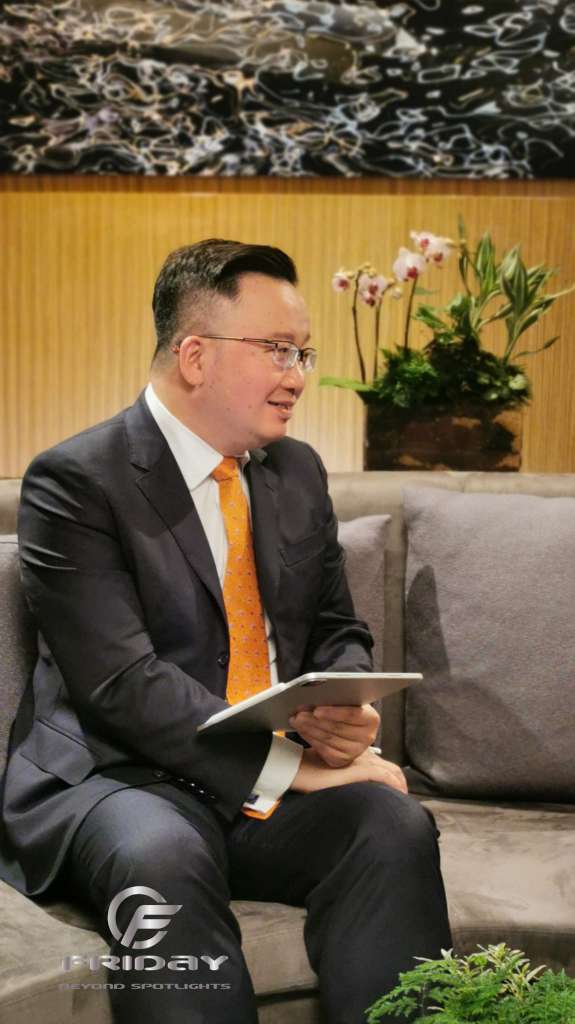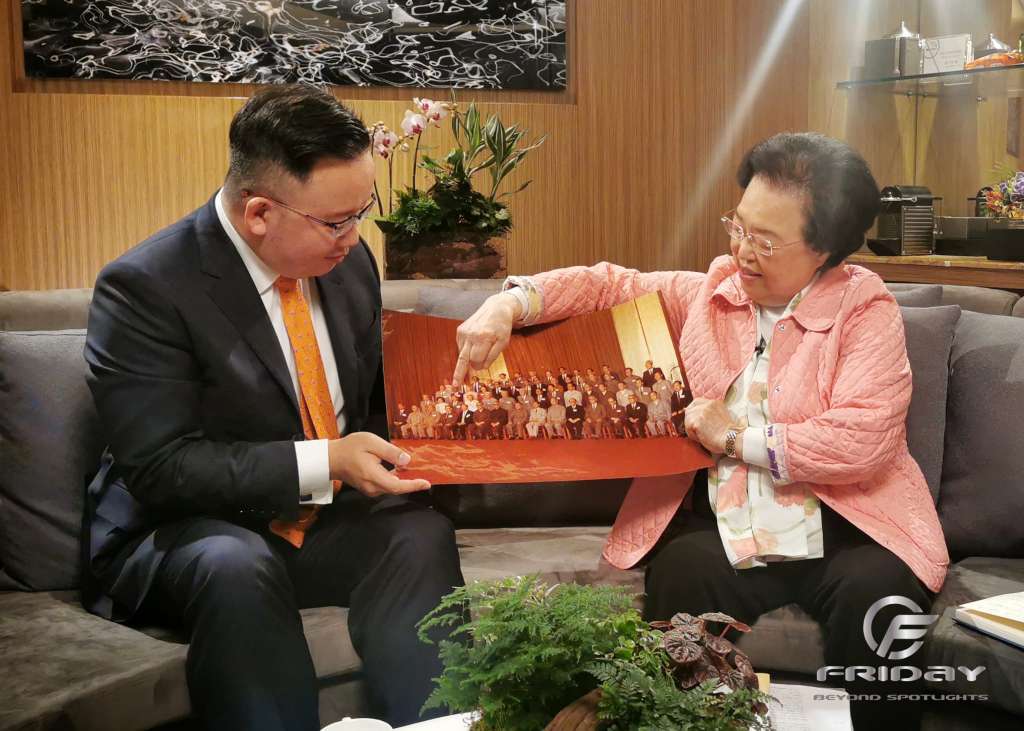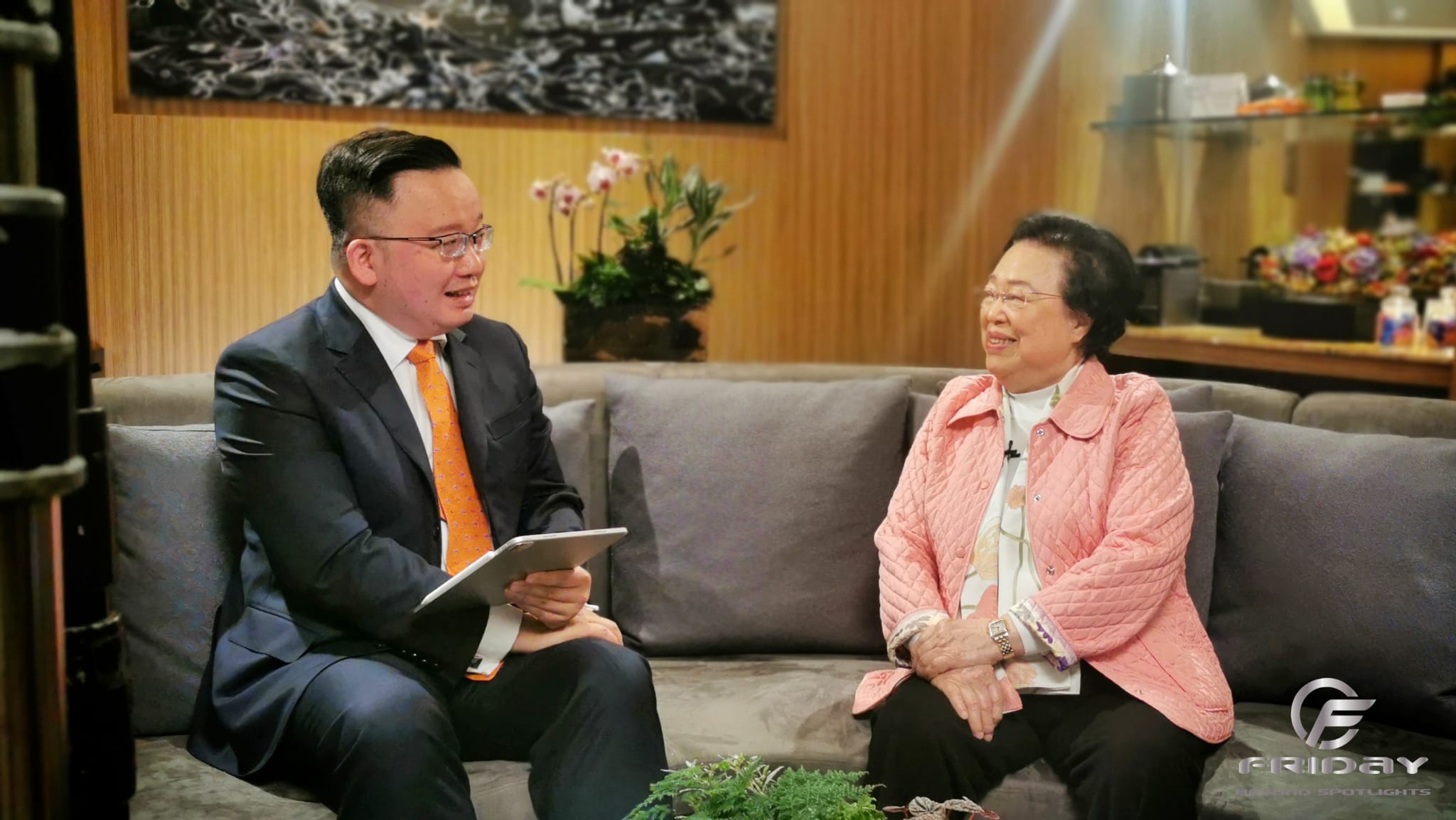- The “one country, two systems” formula was originally designed for Taiwan, rather than Hong Kong, top lawyer Maria Tam said.
- It was not China but Britain who didn’t want Hong Kong people to have universal suffrage, the Basic Law drafter added.
- Meanwhile, Hong Kong’s political system has a surprise “expat-friendly” element which makes it uniquely democratic in the world.
MARIA TAM WAI-CHU, one of the best-known figures in Hong Kong’s legal and political circles, gave a wide-ranging interview to lawyer and lawmaker Nick Chan Hiu-fung in Friday Beyond Spotlights, a TV show. It included insights of the city’s political growth, as well as her own. Ms Tam was a key member of the team of legal architects of Hong Kong’s notably smooth transition from British to Chinese sovereignty, underpinned by the Basic Law.
FREER THAN ANYWHERE
The “one country, two systems” formula first appeared in the 1970s, as a principle to draw Taiwan back into the fold, Ms Tam said—but then was seen to be more immediately useful for Hong Kong.
During the discussion, she pointed out a special element of the democratic system designed for Hong Kong. In countries around the world, the right to vote, known as universal suffrage, is strictly reserved for citizens of the country.
In Hong Kong, uniquely, “you don’t have to be a Chinese citizen,” Ms Tam said. The right to vote goes to anyone with Right of Abode. People from any country, as long as they have Right of Abode, can vote in the Hong Kong system. “It’s freer than anywhere else in the world,” she said.
APPOINTED FROM LONDON

Another irony of the present situation is that Hong Kong is far more democratic now than it was in the British era. Not only was Hong Kong’s Governor appointed directly by London, he always had two votes in the Legislative Council. This meant that in disputes, he would have the casting vote. “He had total administrative power,” she said.
“When I was appointed to the Legislative council in 1982, there were no elected members. We were all appointed,” she said. “So: no checks and balances.”
In 1976, the International Covenant on Civil and Political Rights was widely accepted around the world, but Hong Kong’s colonial rulers made it clear that they would not follow Article 25B, which involved providing universal suffrage for all citizens, Ms Tam said.
SUFFRAGE FROM CHINA
In contrast with popular beliefs, it was not Britain but China which eventually introduced legislation to grant universal suffrage to Hong Kong, she said.
After several years of preparation, the proposal was introduced in Hong Kong with a view to implementation in 2017. But before that date, it was vetoed by politicians who opposed the “nominating committee” element, despite the fact that the committee’s presence was specified in the Basic Law, and nomination committees are widely used in other nations around the world.
Ms Tam has the ultimate insider’s view of the legal and political development of Hong Kong, being a valued senior team member both before and after the handover. She received an Order of the British Empire medal in pre-handover days and a Grand Bauhinia Medal from the post-handover government.
“Yes, I am really going. And when I come back, I will be a barrister.”
Born in Hong Kong just after the war, Maria Tam was the child of a police officer. An extremely bright child, she went to St Paul’s Co-ed, now considered one of the city’s best schools, and then decided to take a traditional British route into the law, heading to London.
Her mother gave her a watch as she left Hong Kong in 1966. As she left to head to Kai Tak airport, her mother was clingy. “Are you really going?” she kept asking.
“Yes, I am really going,” Maria replied. “And when I come back, I will be a barrister.”
She kept her promise in spades, rising to become a familiar face in Hong Kong – and even today, still has the watch she was given as a teenager.
Ms Tam took a law degree at the University of London and was then admitted as a barrister at Gray’s Inn in London, before returning to Hong Kong.

WOMEN’S RIGHTS
Returning to Hong Kong to practice, Ms Tam started to take a practical role in politics as a fighter for the rights of women, winning an election to the Urban Council in 1979 alongside fellow campaigner Elsie Elliot (later Elsie Tu).
Sir Murray MacLehose, Hong Kong’s reformist governor of the 1970s and 1980s, recognized her extraordinary abilities and invited her to join the Executive Council, the British Crown Colony’s top governing body, in 1983.
At that time, negotiations had begun to find a way to handle the end of the British lease on this territory, and it became obvious that a constitutional document would have to be written that would form a legal bridge between British Hong Kong and Hong Kong as part of China.
NEED FOR RESPECT
To the north of the border, the Chinese leadership had realized that reunification was most happily achieved if all sides showed utmost respect for the others – and thus the “one country, two systems” principle was identified. It drew both sides into a family relationship while respecting each side’s differences.
This principle had to be distilled into a legal document that would have to function as a constitution. It had to be short enough to be composed quickly and efficiently over the next few years—but precise enough to serve as a foundational document for a new, post-handover Hong Kong.
It was no surprise that Maria Tam was invited to be one of the writers in 1985.
WIDE CONSULTATION
Older Hong Kongers will recall that the earliest group of people consulted was very wide, including a Buddhist monk who attended meetings in sandals and a saffron robe, a senior churchman in his dog collar, and a broad range of people, including Martin Lee Chu-ming and Szeto Wah, both critics of China.
Later meetings involved a team of Hong Kong specialists working with mainland counterparts.
The drafting process took several years, with each word carefully chosen. And it was not just because the success or failure of the entire community depended on it, but also because it represented a positive parting between two of the world’s great historical empires: Britain and China. The document was completed in April of 1990.

EXTRAORDINARILY SUCCESSFUL
And how did it fare? To cut a long story short, the Basic Law was successful, underpinning a smooth transition in 1997, with all Hong Kong’s fundamental indicators, including its economic performance and legal standing in the world, rising steadily, year after year. Even China’s critics admitted surprise at how smoothly the transition had gone.

Perhaps the most touching moment of the interview occurs near the end. Ms Tam, now aged 76, handed over a pair of pencils to her interviewer Nick Chan Hiu-fung, a lawyer.
“It is your turn to write the law,” she said with a smile.
Maria Tam Wai-chu was taking to Nick Chan Hiu-fung in Friday Beyond Spotlights. The full episode can be seen at the links below;
Part 1: Memories of Hong Kong’s political growth
Part 2: Maria Tam away from the spotlight
Season One of Friday Beyond Spotlights is hosted by Patrick Tsang On-yip, Vice-Chairman and Executive Director of i-Cable Communications and CEO and Director of Chow Tai Fook Enterprises; and Nick Chan Hiu-fung, a lawyer and elected lawmaker serving on the National People’s Congress.
All images come from the show.


